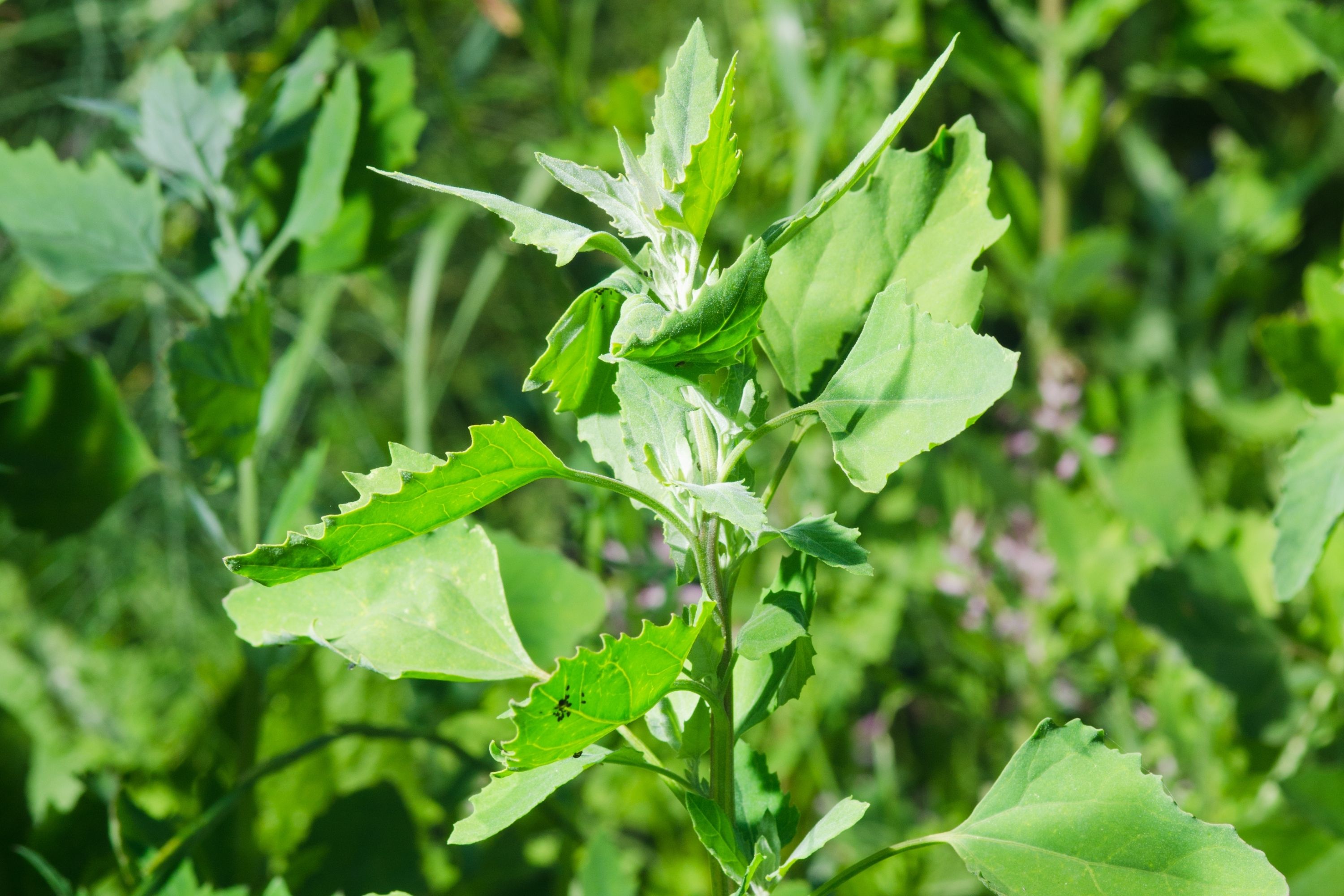Goosefoot
(Chenopodium album)

Description
Chenopodium album is a widely distributed annual herbaceous plant belonging to the Amaranthaceae family. The species is commonly known as lamb's quarters, goosefoot, or pigweed. The plant has been cultivated as a food crop for thousands of years and has been used for medicinal purposes in traditional medicine systems worldwide. In this article, we will discuss the morphology, distribution, traditional uses, nutritional value, and potential health benefits of Chenopodium album. Morphology: Chenopodium album grows up to 2 meters tall and has a bushy, erect habit. The leaves are alternate, simple, and triangular to diamond-shaped, with a length of 2 to 10 cm and a width of 1 to 8 cm. The plant's stem is round, green, and sometimes tinged with red or purple. The flowers are small, greenish, and arranged in dense clusters or spikes at the tips of the branches. The fruit is a small, dry, round or oval-shaped structure containing a single seed. Distribution: Chenopodium album is native to Eurasia but has been introduced and naturalized in other parts of the world. The plant grows in a wide range of habitats, including disturbed areas, fields, gardens, roadsides, and waste places. It is commonly found throughout North America, Europe, Asia, and Africa. Traditional Uses: Chenopodium album has a long history of use in traditional medicine systems worldwide. The plant has been used to treat a variety of ailments, including diarrhea, dysentery, respiratory infections, and skin disorders. The leaves and stems of the plant are high in calcium, iron, and vitamins A and C, and have been used as a source of nutrition in times of food scarcity. Nutritional Value: Chenopodium album is a highly nutritious plant with a variety of health benefits. The plant is rich in vitamins A and C, calcium, iron, and potassium. The leaves and stems of the plant are also a good source of protein and dietary fiber. Chenopodium album is also a rich source of antioxidants, which can help protect the body against oxidative damage caused by free radicals. Potential Health Benefits: Chenopodium album has a variety of potential health benefits. The plant has been shown to have antimicrobial and anti-inflammatory properties, which may help protect against infectious diseases and chronic inflammatory conditions. Chenopodium album may also have antidiabetic properties, as it has been shown to lower blood sugar levels in animal studies. Additionally, the plant's high calcium content may help improve bone health, and its high fiber content may help promote digestive health. Conclusion: Chenopodium album is a highly nutritious and beneficial plant with a long history of use in traditional medicine systems worldwide. The plant's leaves and stems are high in vitamins, minerals, and antioxidants and have a variety of potential health benefits. Although Chenopodium album is considered a weed by many, it is a valuable source of nutrition and medicine that should be appreciated and utilized.
Taxonomic tree:







